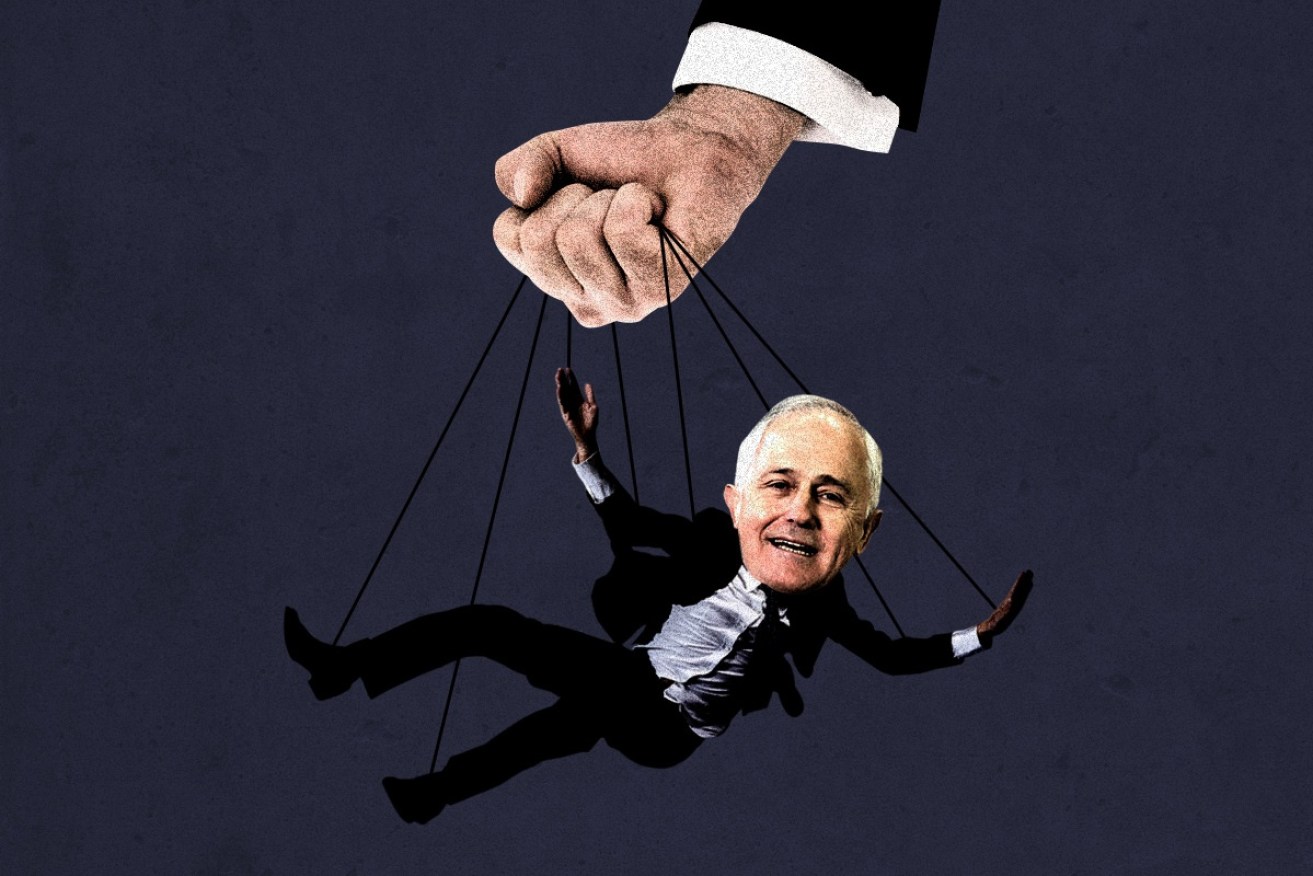Turnbull must prove he’s not a puppet of his party’s right wing


If the Turnbull government lasts the full term, the important question is who is calling the shots. Photo: TND
ANALYSIS
Parliament House has been abuzz this week with political staffers, journalist and lobbyists asking each other in hushed tones how long the Turnbull government can last.
Some see it collapsing within months. Some see it surviving, but with Senator Cory Bernardi leading a small band of Australian Conservatives into the wilderness in disgust over the ’18C’ race debate or marriage equality.
And some, like myself, suspect it will go full term. Let’s not forget the same question was asked about Julia Gillard’s minority government in 2013, yet she all but finished a full term before Kevin Rudd deposed her in 2013.
If the Turnbull government does go full term, the next important question is who is calling the shots.
Doubts have been raised about Prime Minister Malcolm Turnbull’s authority, given the growing backbench revolt over the Racial Discrimination Act and the floundering marriage equality plebiscite.
As important as those issues are, the deteriorating state of the economy must surely be front of mind. Are Mr Turnbull and Treasurer Scott Morrison calling the shots on economic policy, or have they already become puppets of the right wing of the Coalition parties?
One absolutely damning answer came on Wednesday morning when an allegation from Peter Van Onselen’s new book The Turnbull Gamble broke in the media.
The assertion was that Mr Turnbull and Mr Morrison tried to convince their own cabinet to back reforms to the tax breaks associated with negative gearing and capital gains tax.

Mr Turnbull and Mr Morrison are said to have tried to convince their cabinet to back reforms on negative gearing and capital gains tax. Photo: AAP
The really damaging allegation is that they were then ‘rolled’ by the cabinet – something that Shadow Treasurer Chris Bowen claims had not happened on either side of politics on economic policy since the Whitlam era.
As Mr Bowen wrote in his 2015 book The Money Men, Prime Minister Gough Whitlam asked flamboyant Labor MP Jim Cairns to be treasurer, but was rebuffed on the grounds that the job involved getting across too much finickity detail.
Whitlam appointed Frank Crean instead, but then found Cairns effectively planning economic policy from outside the Treasury Portfolio – both humiliating his leader and Mr Crean, and over-riding sound advice they have received from the Department of Treasury.

Mr Shorten used Question Time to quiz the PM on the book’s claims. Photo: AAP
That absurd situation lead to Crean and Cairns having to swap portfolios. Worse, Cairn’s disregard for Treasury advice was a key element in leading Labor toward the constitutional crisis of 1975.
The rolling of Turnbull?
If Peter Van Onselen’s book is accurate, Mr Turnbull and Mr Morrison fought vociferously through the last election campaign against a Labor policy which they essentially supported behind closed doors.
Surprisingly, Opposition Leader Bill Shorten did not put this allegation to the PM until a full 30 minutes of the new Parliament’s first Question Time has elapsed on Wednesday.
Mr Shorten asked: “Can the PM confirm reports today that he and the Treasurer are all in favour of making changes to negative gearing before the minister for immigration rolled them in cabinet … Isn’t this yet another case of the PM with no authority being dragged to a position by the right wing of his party?”
“The story recounted by Mr Van Onselen in his book has no basis, in fact, at all … the version of events proffered in the book that was extracted in the newspaper today simply is wrong. There was no leak, it is an invention.”
PM Turnbull's response
It is possible that Mr Van Onselen’s source invented the story – especially since cabinet leaks are illegal and carry a penalty of up to two years in prison.
It is highly unlikely, however, the one of the nation’s most senior political commentators would print that story without having a credible cabinet source.
Either way, we know that Mr Turnbull used to be strongly in favour of reforming negative gearing and capital gains tax, because he said so clearly in the tax reform discussion paper he wrote when he entered Parliament in 2004.
His remarkable conversion on this issue must, therefore, make voters suspicious that less reform-minded Coalition MPs have the upper hand in cabinet or in the party room.
We should all hope that is wrong, but it will take months of strong leadership from Mr Turnbull before we can be sure.
Until then, the suspicion of ‘Puppet Turnbull’ will be hard to shake.








